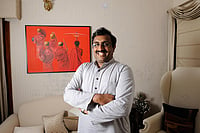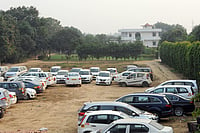Our reporters ask students at seven universities what they make of the 2016 Union budget and how it affects their lives at a time of academic and political upheavals.
***
Aligarh is a small town with a big university. Aligarh Muslim University, AMU—one of the country’s oldest INStitutions for higher education—has recently been in the news with reports of a prickly relationship with the ministry of human resources development. Recently, the government has challenged AMU’s minority status in court.
A problem with small towns is that young students often don’t know their options beyond, says AMU’s placement officer, Saad Hameed. He came in four years ago to set up AMU’s first placement cell. He tried to attract corporates in the last two years of the previous government and the first two years of the current government and he feels that things have never been better than right now. Sugandha Sehgal, 22, is particularly impressed that the budget has set aside an allocation for women entrepreneurs. “I always wanted to start my own restaurant and this budget has encouraged me. I have all the knowledge I need and can put it into practice now.” But this optimism aside, the students here are more agitated with the hold-up on their research fellowships, just like thousands of others around the country.
“When I started my PhD, I was getting scholarships from the previous government and didn’t face the kind of difficulties I am facing now. We got into research so we could work on things that improve the country,” says Aliza Haider, in her third year of PhD. “My younger siblings are not keen on pursuing research like me, after seeing this situation,” says Tasneem Khan, also a PhD scholar. The young students are united in their grievance against this. But when the conversation turns towards reservations for caste, allowance for minority institutions, and the role of students who receive subsidies from the government, the group splits. AMU is a minority institution with the unique feature that there is no reservation for Muslims. “I think Muslim minorities like us need to be given a platform to improve our community,” points out Zeenat Fatima. Her non-minority friends amicably disagree, saying that enough has been done for backward communities.
The arguments on both sides begin to fall away when Sehgal, who had been trying to explain the need for a society sans any kind of preferences for social minorities, can’t fully answer when she’s challenged by her friend Zeba Ansari. “If we are so against reservations, we should not take the various allowances demarcated for women either,” says Ansari. Sehgal’s defence alludes to the very crux of the debate on quotas: “I am from a well-off family. Even if I don’t get any government money, I can still start my own business successfully,” she says. And the budget is suddenly very far away.


















.jpg?w=200&auto=format%2Ccompress&fit=max)







